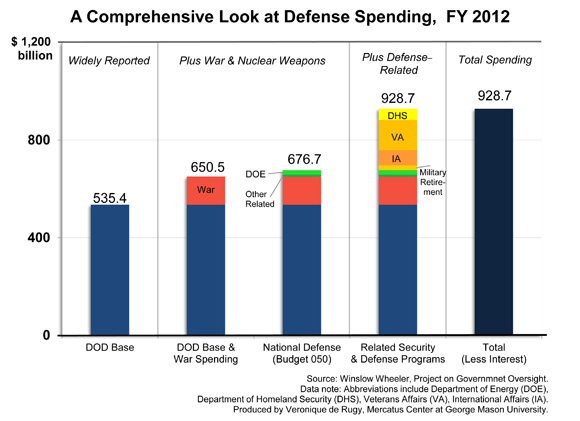Why are global politicians so intent on promoting arms sales and military expenditures? Why do we witness recurring and endless cases of war , armed conflict, ethnic strife and terrorism in today's world? According to recent estimates global military expenditure stands at over $1.7 trillion in annual expenditure at current prices for 2011 (or $1.63 trillion dollars at constant 2010 prices), and has been rising in recent years. In the Swedish Institute for Peace Research Report SIPRI, once again authors have noted that:
, “There is a large gap between what countries are prepared to allocate for military means to provide security and maintain their global and regional power status, on the one hand, and to alleviate poverty and promote economic development, on the other.”
This money could save thousands on the verge of starvation and provide education and health care for millions of children throughout the world.
Human civilization seems to have advanced in many areas during the recent centuries and this advancement has bought a luxurious or at least confortable life for some, but only at the expense of severe loss in the quality of life for others.
Indeed, compare this military spending with the entire budget of the United Nations:
, “There is a large gap between what countries are prepared to allocate for military means to provide security and maintain their global and regional power status, on the one hand, and to alleviate poverty and promote economic development, on the other.”
This money could save thousands on the verge of starvation and provide education and health care for millions of children throughout the world.
Human civilization seems to have advanced in many areas during the recent centuries and this advancement has bought a luxurious or at least confortable life for some, but only at the expense of severe loss in the quality of life for others.
Indeed, compare this military spending with the entire budget of the United Nations:
The United Nations and all its agencies and funds spend about $30 billion each year, or about $4 for each of the world’s inhabitants. This is a very small sum compared to most government budgets and it is less than three percent of the world’s military spending. Yet for nearly two decades, the UN has faced financial difficulties and it has been forced to cut back on important programs in all areas, even as new mandates have arisen. Many member states have not paid their full dues and have cut their donations to the UN’s voluntary funds. As of December 31, 2010, members’ arrears to the Regular Budget topped $348 million, of which the US owed 80%.
- Military protection manpower per 1,000 people in North Korea in 2008 was 46, the highest in the world.
- The 15 countries with the highest spending account for over 81% of the total;
- The USA is responsible for 41 per cent of the world total, distantly followed by the China (8.2% of world share), Russia (4.1%), UK and France (both 3.6%)
The US government has a firm grip on its number one rank on military budget and spending in the world. While Americans and the global public opinion were told that 535.4 billion US dollars were spent in 2012 on defense , a report by Winslow Wheeler of the Project on Government Oversight suggests that reported defense spending figures underestimate the overall cost of defense and national security programs by a mere 400 billion dollars in FY 2012.
Probably the most interesting military-related budgetary gossip has been the practice of keeping the operational costs of the wars in Iraq and Afghanistan separate from the main Pentagon budget, as if those costs should not count as much because they are , sort of temporary. There is, admittedly, a sense in which the Iraq War should not be counted as “defense” spending. The war was not an act of defense; it was offense. But that, of course, is not the reason for the practice (begun by the administration that launched the Iraq War) of separating costs of the war from the main defense budget. The reason had much more to do with wanting to understate the actual amount the United States spends on its military. Since high military expenditures are not justified in terms of public opinion within and out of the US. The US in not alone in this race, China, Russia and North Korea and NATO members are in the same category.
Observers have shown how the true total cost of an endeavor such as the Iraq War goes far beyond what shows up in the federal budget and includes various secondary economic effects. A big part of the follow-on cost of recent wars is the long-term care of military veterans, especially grievously wounded ones. Such costs are proportionately greater than for previous wars. Due to modern body armor and a splendid military medical system, many who would have died in earlier conflicts instead survive—but they are still maimed by the incidents.
War is a very painful and disastrous entity both for humanity but also for nature as well.
Civil societies should engage in global campaigns to ask governments to stop the arms race and to start more responsible spending for health, education and employment thereby giving all humans the right they deserve to dignified livelihoods.
Peace is a prerequisite to development and human advancement, the selfish excesses of a minority has led the world to instability and war.
War is a very painful and disastrous entity both for humanity but also for nature as well.
Civil societies should engage in global campaigns to ask governments to stop the arms race and to start more responsible spending for health, education and employment thereby giving all humans the right they deserve to dignified livelihoods.
Peace is a prerequisite to development and human advancement, the selfish excesses of a minority has led the world to instability and war.
 .
.
No comments:
Post a Comment